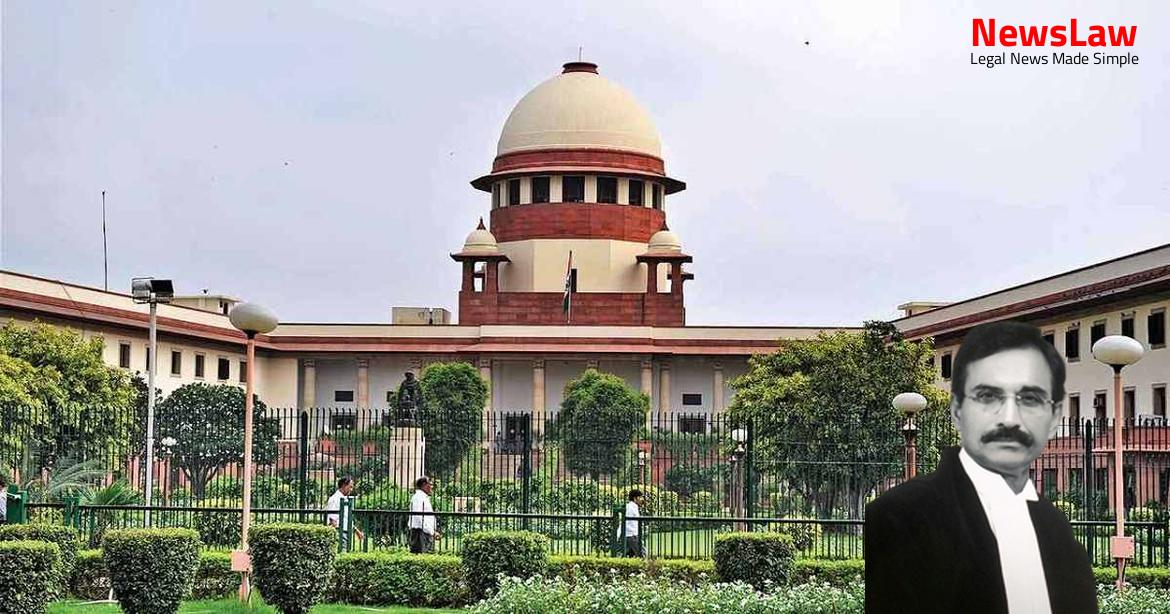In a recent legal case, the court conducted a detailed analysis of allegations of illegal mining, focusing on the legal aspects rather than the involved parties. The judgment scrutinizes demarcation reports, the scope of judicial review in quasi-judicial matters, and the importance of conclusive evidence in determining guilt. Let’s dive deep into the court’s legal analysis and its implications on matters of illegal mining.
Facts
- A lease deed was executed between the Appellant and the State Government on 11.04.2016, with mining operations commencing on 15.06.2016.
- The Director General, Mines and Geology, terminated the mining lease of the Appellant on 10.01.2020, leading to an appeal being filed.
- An enquiry conducted by the Additional Deputy Commissioner found illegal mining in the Aravali Forest area beyond the leased area.
- Multiple demarcations of the mining area were done due to complaints of illegal mining by the Appellant.
- An appeal filed by the Appellant was dismissed by the Appellate Authority on 07.05.2021.
- Further complaints of illegal mining were made by the Sarpanch of Village Khudana, leading to additional demarcations and reports of mining outside the leased area.
- The High Court rejected the Appellant’s claim that the illegal mining was conducted by another company, as their mines had been closed during the period in question.
- The High Court dismissed the writ petition based on a memo from the Mining Officer, Narnaul, dated 04.02.2019.
- The Mining Officer found the Appellant engaged in illegal mining outside the leased area despite a demarcation conducted on 17.12.2018.
- The High Court held that the scope of judicial review of orders by quasi-judicial authorities is limited.
- The High Court stated that findings of fact cannot be interfered with in such cases.
Also Read: Interest Compensation Dispute in Property Demolition Case
Arguments
- The Sarpanch of Village Khudana filed a complaint based on residents’ complaints but lacked solid proof.
- Mr. Nidhesh Gupta, representing the Appellant, argued that the Termination Order showed a lack of proper consideration.
- The contention that the Appellant had no material to link them to illegal mining outside the leased area was not considered by the Appellate Authority.
- The reports submitted were inconclusive and lacked findings implicating the Appellant for illegal mining.
- The ADC Report mentioned that the Appellant was mining in its allocated area, while M/s Hari Har Mining Company was conducting illegal mining in Garhi area.
- Ms. Noopur Singhal, learned counsel for the Respondent, supported the High Court’s findings.
- She argued that there were complaints by villagers about illegal mining by the Appellant.
- The report of the Mining Officer dated 04.02.2019 indicated the Appellant’s guilt of illegal mining.
- The Termination Order was justified as it was issued after giving the Appellant sufficient opportunities and considering the evidence on record.
- The High Court was correct in not interfering with the Termination Order.
Also Read: Governor’s Discretion in Sentence Remission: Legal Analysis
Analysis
- The ADC Report, the Sarpanch letters, and the DFO report all concluded that there was no evidence of the Appellant being involved in illegal mining.
- The High Court set aside the Appellate Authority’s order and remanded the matter for fresh consideration.
- The Termination Order did not mention the DFO report absolving the Appellant of illegal mining.
- The Surveyor verified the demarcation marking stones and found no evidence of illegal mining by the Appellant.
- The High Court erred in dismissing the writ petition without examining if there was any evidence justifying the Termination Order.
- The Appellate Authority concluded illegal mining based on a report from the Mining Officer, despite no conclusive evidence against the Appellant.
- The demarcation reports and enquiries did not provide sufficient evidence of illegal mining by the Appellant beyond the leased area.
- The memo from the Mining Officer confirmed no fresh mining beyond the designated area in the latest demarcation report.
- Overall, the various reports and demarcation findings do not substantiate the allegation of illegal mining against the Appellant.
Also Read: Regulation of Capitation Fees in Private Medical Colleges
Decision
- The order dated 10.01.2020 passed by the Director General, Mines and Geology, Haryana is set aside.
- The order dated 11.08.2021 passed by the Appellate Authority is set aside.
- The impugned judgment of the High Court dated 06.09.2021 is set aside.
- The Appeal is allowed.
Case Title: M/S. HARYANA MINING COMPANY Vs. STATE OF HARYANA (2022 INSC 541)
Case Number: C.A. No.-003795-003795 / 2022



